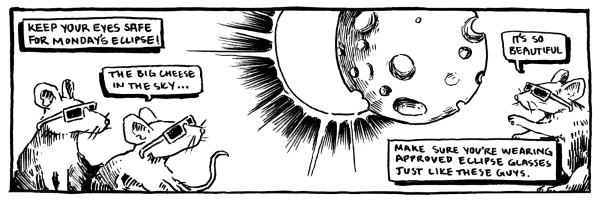Pianos in Conservatory Contribute to Hearing Loss
Walking into the Conservatory’s Robertson Hall, I pause for a moment in the breezeway to enjoy the chorus of instrumental chatter filtering through the space. As a pianist, I appreciate the fragments of piano pieces that I hear, and I am struck by how vividly I can recognize a piece from an individual practice room, whether it be the feverishly fast right hand runs from Chopin’s Winter Wind Étude or the thundering left-hand arpeggios of Rachmaninoff’s Piano Concerto No. 2.
The clarity with which I hear music emanating from rooms in such a large building raises a question: just how loud are the pianos in Robertson, and do they endanger the hearing of pianists and those playing with pianists in Robertson practice rooms?
To answer this question, I first drew on my past experiences as a musician. Having been a pianist and orchestral oboist in high school before focusing solely on piano at Oberlin, I encountered firsthand the dangers of loud music. As an oboist, I would sit directly in front of the brass section, putting me in especially close proximity to high-decibel sounds. In the hours after a concert or rehearsal, I remember the disconcerting realization that my ears were ringing, and there was little I could do but wait for the sound to dissipate.
I decided to meet with an audiologist, who conducted a series of hearing tests. The test results were a serious wake-up call. At age 16, I had mild hearing loss in my left ear — not enough to impact my life noticeably but enough to cause concern that I might incur more noticeable hearing loss in the future if I continued with my same habits.
My experiences as an oboist motivated me to become a dutiful user of earplugs while I played in ensembles, but I never seriously considered that my solo piano practice could be a threat to my hearing until I paused in the breezeway of Robertson and wondered, “Could my hours of piano practice every day also be damaging to my hearing?”
Curious, I tested the loudness of pianos in Robertson with a commercially available decibel reader on my phone. In a sample of 10 pianos, I received readings in the range of 80–100 decibels when playing on what I considered a mid-level dynamic. The American Academy of Audiology recommends the use of hearing protection for any sounds over 85 decibels, and the Occupational Health and Safety Association says that sounds over 90 decibels can lead to permanent hearing loss without proper ear protection. The pianos in Robertson often exceed this level. I wondered how they could have gotten this loud.
The reason has nothing to do with their quality but, instead, has everything to do with the frequency with which they are played. From the early morning into the late night, the dozens of pianos in Robertson are played nonstop, which impacts the mechanics of the pianos’ hammers over time. These felt-coated hammers, which hit the string to create a tone, gradually become more and more compacted with every strike. The harder the hammer, the brighter the tone will be, and thus the louder the sound the piano will produce.
The most direct solution to this problem is a thorough revoicing — the process of softening the felt of the hammers so that when they hit the strings, the sound produced is more muted. Considering that there are over 100 pianos in Robertson and a limited number of technicians, such an undertaking would be a considerable logistical challenge.
More importantly, I hope the Conservatory seriously considers addressing the problem not only through technical means, but also by going a step further and raising awareness about the problem of hearing loss for musicians as a whole. In my experience, the exposure to potentially damaging sound can seem like an unavoidable part of the relentless grind of practice, rehearsals, and lessons. It is a price to pay for dedication to the instrument.
The problem with this mindset is that it completely ignores the way music is profoundly connected to our health. Music is nourishing to our emotional and intellectual well-being, but at the same time, the choices that we make as musical artists linger in parts of our lives far from the practice room. Choosing to ignore one’s aural health in the practice room can lead to enormous consequences in the future.
In light of this, I hope the Conservatory seriously considers addressing the problem not only through technical means but also by going a step further and raising awareness about the problem of hearing loss for musicians in general.




